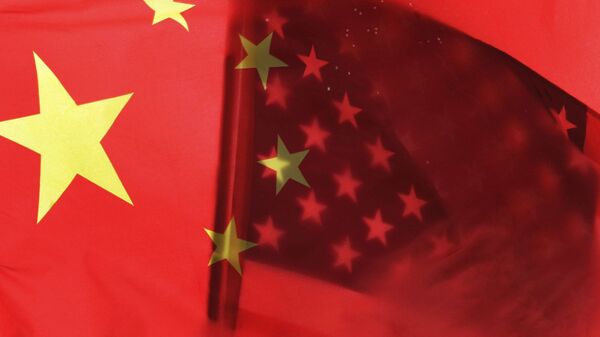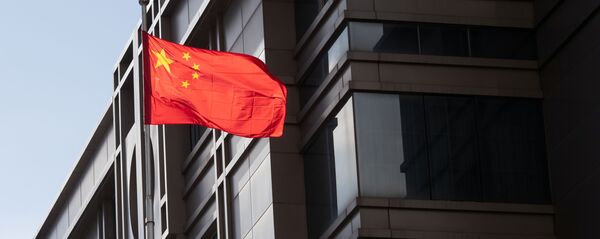Secretary of State Mike Pompeo’s speech at the Richard Nixon Presidential Library in Yorba Linda, California on Thursday seemed designed to lay down the contours of a new kind of relationship between the United States and the People’s Republic of China, and came some 48 years after Nixon formally began the process of opening relations with the Communist country.
“President Nixon once said he feared he had created a ‘Frankenstein’ by opening the world to the [Chinese Communist Party], and here we are,” Pompeo said as he listed off a series of Beijing’s alleged transgressions against America.
“China ripped off our prized intellectual property and trade secrets, costing millions of jobs all across America. It sucked supply chains away from America, and then added a widget made of slave labour. It made the world’s waterways less safe for international commerce,” the secretary claimed.
“I grew up and served my time in the Army during the Cold War. And if there is one thing I learned, communists almost always lie. The biggest lie that they tell is to think that they speak for 1.4 billion people who are surveilled, oppressed, and scared to speak out,” Pompeo added.
Urging the other “free nations” against continued “blind engagement” with Beijing, Pompeo insisted that “the only way to truly change communist China is to act not on the basis of what Chinese leaders say, but how they behave...President Reagan said he dealt with the Soviet Union on the basis of ‘trust but verify’. When it comes to the CCP, I say we must distrust and verify.”
“We, the freedom-loving nations of the world, must induce China to change, just as President Nixon wanted. We must induce China to change in more creative and assertive ways, because Beijing’s actions threaten our people and our prosperity,” Pompeo emphasised.
Honored to have had the opportunity to visit @NixonLibrary in California and give remarks to reiterate the importance of the U.S. and the world addressing the threats posed by the Chinese Communist Party. Thanks to the team for your gracious hospitality. https://t.co/EP7OmWExDm. pic.twitter.com/PtaoC9Awoj
— Secretary Pompeo (@SecPompeo) July 24, 2020
International media picked up on Pompeo’s hawkish Cold War-style language, coming against the backdrop of the further escalation of tensions this week over the closure of China’s Houston Consulate, and the tit-for-tat retaliation against America’s diplomatic mission in Chengdu by Beijing. In an interview, Fox News host Martha MacCallum asked Pompeo directly whether the US and China were now in a Cold War.
“Label it what you must, but President Trump understands that the previous administrations, both Republican and Democrat alike, turned the other check for an awfully long time and resulted in a real imbalance in the relationship between the United States and China. We aim to fix it,” was Pompeo’s response.
'Cool War' or Even More Dangerous Iteration of Cold War?
Despite the intensity of Pompeo’s rhetoric, observers from Russia, whose predecessor, the USSR, faced off against the United States in a Cold War for much of the second half of the twentieth century, suggested that the current US-China tensions aren’t quite at the same stage of mutual animosity and hostility yet.
“Yes, outwardly it resembles the Soviet-American relationship of the 20th century,” Fyodor Lukyanov, research director of the Valdai Discussion Club, said in an interview. “But the content is completely different, with economics, not politics, being what matters.”
According to the analyst, the idea of a Cold War excludes the prospect of close trade ties between two nations, while in the case of the US and China, they exist, and are quite strong (with total trade reaching nearly $559 billion US in 2019).

Lukyanov believes that the only real motive for the recent uptick in confrontational rhetoric between Washington and Beijing is the upcoming election in November. “Trump’s team has consciously come to the conclusion that the ‘Chinese threat’ is the most promising topic for reelection. Its use will only grow, and several months from now the impact of Pompeo’s speech may be equal to that of [Winston Churchill’s] Fulton Speech,” i.e. the March 1946 ‘Iron Curtain Speech’ marked by some historians as the starting point of the Cold War.
“The Cold War was basically ideological and to some extent even domestically driven in the United States, but the two countries really did not have competing economic interests. For the US and China, it is much more of a classic imperialist rivalry with massive interconnections and inter-dependencies on each other, and yet, at the same time, a very distinctive and a very close rivalry.” That, the professor believes, makes the growing US-China rivalry potentially “far more dangerous than the Cold War between the United States and the Soviet Union.”
Biden: Beijing’s Best Hope?
Temur Umarov, China expert and consultant at th eCarnegie Moscow Center, says the current administration’s conflict with China isn’t a new one, with the only difference being how the Trump team deals with Beijing compared to his predecessors.
“Trump’s advisors, called the ‘hawks’, are supporters of radical measures. They understand that they need to do as much as possible before the election, since a Joe Biden victory would put an end to the Republicans’ plans,” Umarov says.
The Democratic candidate’s strategy would be slightly different. “He’s in favour of sitting down at the negotiating table, uniting with allies, strangling China using institutional means, but simultaneously keeping face, behaving diplomatically and not falling into hysterics,” the observer argues.

As for the Trump administration’s latest move against China via the closure of the Chinese Consulate in Houston, and the retaliatory closure of the US diplomatic mission in Chengdu, Umarov says this move has hurt Washington much more than it has Beijing. “America is an open country, and Chinese lobbyists have free access to American officials and businessmen. China is a closed state. Therefore, any US representatives – be it journalists or diplomats, are very important. Their expulsion will be a major blow to the availability of information [for] the Americans in China,” the China expert concludes.




